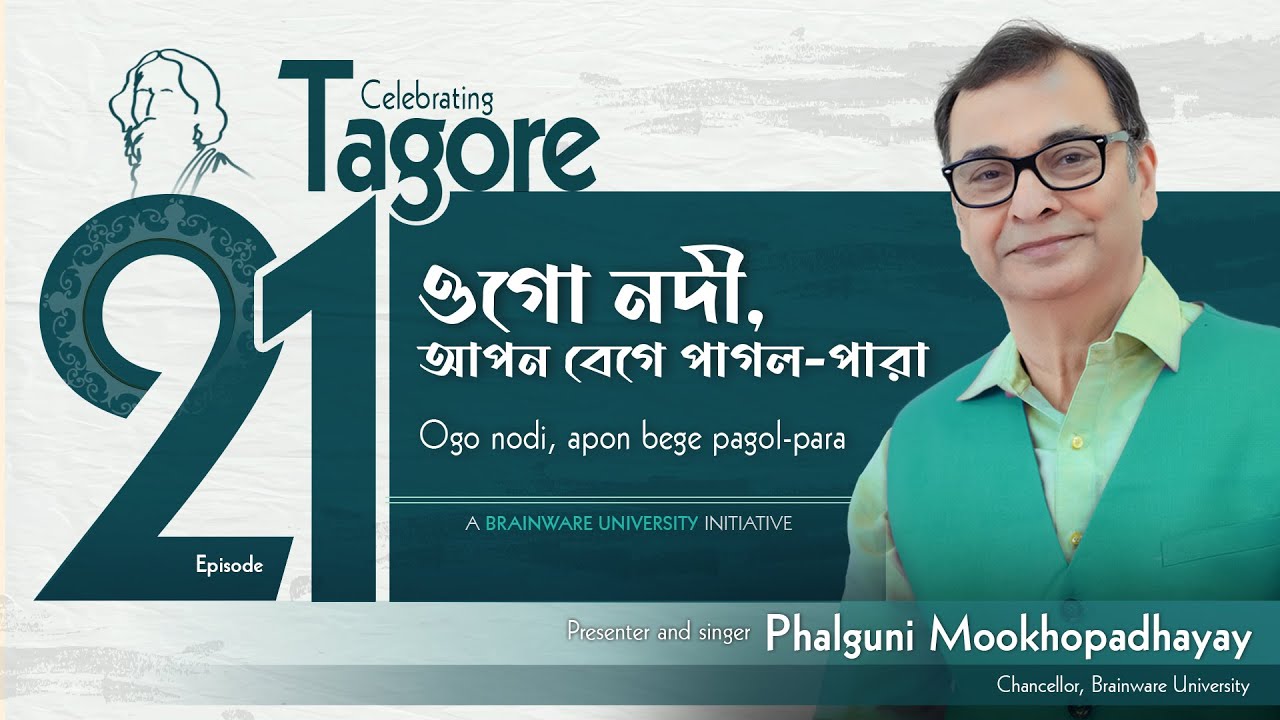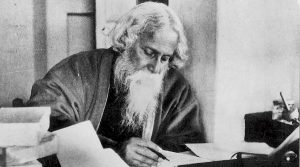
Ogo Nodi Apon Bege was written on March 7, 1915 by Rabindranath Tagore at the age of 53, during a train journey. Renowned author and artiste Shantidev Ghosh has shed light on the composition of this song. “Many people think that Rabindranath wrote all the songs of the play Falguni exclusively for the drama, but that is not true. In the month of Falgun, corresponding to February-March, he went to Calcutta from Surul by train. The speed of the train created a special emotion in his mind. The movement resonated within him and became the springboard for two songs. The first is Choli go choli go jai go choli, while the second is Ogo nadi apan bege pagal-para. However, the way these songs are interwoven in the play Falguni, it is hard to distinguish that they were the result of a journey on the railway track. ” The song’s impact expands beyond earthly boundaries, as the joy felt by the sky and the silent stars of the night become integral to the narrative. This imagery adds a touch of wonder and awe, suggesting a profound connection between the celestial and earthly realms. It invites listeners to contemplate the larger tapestry of existence and the interconnectedness of all living beings.
Lyrics:
ওগো নদী, আপন বেগে পাগল-পারা,
আমি স্তব্ধ চাঁপার তরু গন্ধভরে তন্দ্রাহারা॥
আমি সদা অচল থাকি, গভীর চলা গোপন রাখি,
আমার চলা নবীন পাতায়, আমার চলা ফুলের ধারা॥
ওগো নদী, চলার বেগে পাগল-পারা,
পথে পথে বাহির হয়ে আপন-হারা–
আমার চলা যায় না বলা– আলোর পানে প্রাণের চলা–
আকাশ বোঝে আনন্দ তার, বোঝে নিশার নীরব তারা॥
English translation:
O river, swirling ahead at a frenetic pace,
I stand still like a magnolia tree, devoid of sleep and redolent with fragrance,
Remaining motionless always, concealing my secret flow,
My movements are visible in budding leaves and blossoming flowers.
O river, flowing ebulliently in the wilderness,
Losing itself while traversing its course.
I move silently, as my life force reaches for the light.
Even the sky feels joy, as do the silent stars of the night.
Purpose of the presentation
Tagore’s music resonates with people from all walks of life. His songs are performed at cultural events, religious ceremonies and social gatherings, reflecting their enduring popularity. In an effort to bring home this treasure trove to the non-Bengali population and Bengalis around the globe, Brainware University offers a selection of Rabindrasangeet in this presentation. It is enriched with details on the songs and relevant anecdotes.
Sung By
Sri Phalguni Mookhopadhayay Chancellor, Brainware University
Phalguni Mookhopadhayay is the founder-Chancellor of Brainware University, founder-Chairman and Managing-Director of Brainware Consultancy Private Limited and founder-Chairman of Webguru Infosystems Private Limited. He did his schooling at Ramakrishna Mission Vidyalaya, Narendrapur, and graduated with honours in Economics from St Xavier’s College, Kolkata. He completed his masters in Economics from Calcutta University and MBA from IISWBM, before joining Hindustan Lever as a management trainee. He worked as a market planner for the ABP group for nearly a decade before striking out on his own and successfully launching two private limited companies and one University. Phalguni Mookhopadhayay is a self-taught digital artist, a versatile photographer, a filmmaker and a weekend singer who has already recorded 78 songs and is now immersed in a project to popularise Tagore songs among a global audience.





